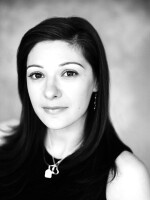MICHELE NORRIS, host:
From NPR News, this is ALL THINGS CONSIDERED. I'm Michele Norris.
Baghdad is under curfew today, but it's had little impact on the surging sectarian violence that has left hundreds dead in the city. Yesterday most of the victims were Iraqi Shiites in the vast slum known as Sadr City. Today, Shiite gunmen sought revenge, attacking Sunni mosques and worshippers elsewhere in Baghdad.
NPR's Jaime Tarabay is with us now from the Iraqi capital. Jaime, tell us about what's going on there today.
JAIME TARABAY: Well today the Shiite militias in Sadr City who are loyal to the anti-American cleric Moqtada al-Sadr began their day burying their dead. There were funeral processions throughout Sadr City. People were walking on foot with wooden coffins strapped to the roofs of cars. They escorted them to the edge of the district and the police pickup trucks escorted the vans all the way down to the Shiite holy city of Najaf for burial.
And then it was just retaliation. There were mortars fired in Sunni areas, at the Abu Hanifa mosque in Atamiyah which is the holiest Sunni shrine in Baghdad. It was damaged yesterday and today it was fired at again. Most of the violence that was carried out today was carried out by the Mehdi army which is loyal to Moqtada al-Sadr. We understand that between 10 and 15 people were killed. The bodies were taken to the morgue. There are again more unidentified victims of this violence.
We're heard so many reports about so much violence, which hasn't been confirmed at all. The Interior Ministry rejects reports of people being burnt alive, which is just some of the things that we're hearing about today. But we do know for a fact that the curfew, which came in last night, has been extended at least until Saturday.
NORRIS: Now Jaime, all this is going on despite calls for calm from the government and from the cleric Moqtada al-Sadr himself.
TARABAY: That's right. Everyone has come out, everyone has been on the air or speaking in mosques today and yesterday pleading for restraint. Even the Grand Ayatollah Ali al-Sistani, he is the highest Shiite cleric and religious authority in Iraq, came out and urged everyone to be calm, to show restraint and to not retaliate.
I think they're all sensing just how seminal a moment this is. It could make things so much worse than they are already and just even today, with the fact that it was Friday prayers, it was a day off for most people, shops were closed and there was no traffic. And even so with the city as quiet as it was supposed to be, there was a simmering level of violence and these sporadic attacks happening throughout the city.
NORRIS: And it sounds like the political situation there is getting ever more complicated. Politicians in Moqtada al-Sadr's block have threatened to withdraw from the government if Prime Minister Nouri al-Maliki goes ahead with that planned meeting with President Bush next week. How serious is that threat?
TARABAY: Well, they have actually made this threat before. When Prime Minister Maliki went to Washington to meet with President Bush, they demanded that he did not go but he went in spite of that.
But this might be different. We're not sure what will happen. The situation now is so delicate, it's so tense and Prime Minister Maliki really needs the support of the Sadr people. They form most of his political base. He wouldn't have been prime minister if he hadn't have gotten that extra vote from the Sadr coalition. So he at the same time is under pressure from Washington to crack down on the militias that are loyal to Sadr, but he also has to appease his political base.
So he's under a lot of pressure right now and I'm not sure what he's going to do. And I think the fact, you know, what he ends up doing, if he does go through with this meeting, it's going to be a big indicator of what will be next, what will come after that.
NORRIS: That was NPR's Jaime Tarabay speaking to us from Baghdad. Thank you, Jaime.
TARABAY: Thank you. Transcript provided by NPR, Copyright NPR.






